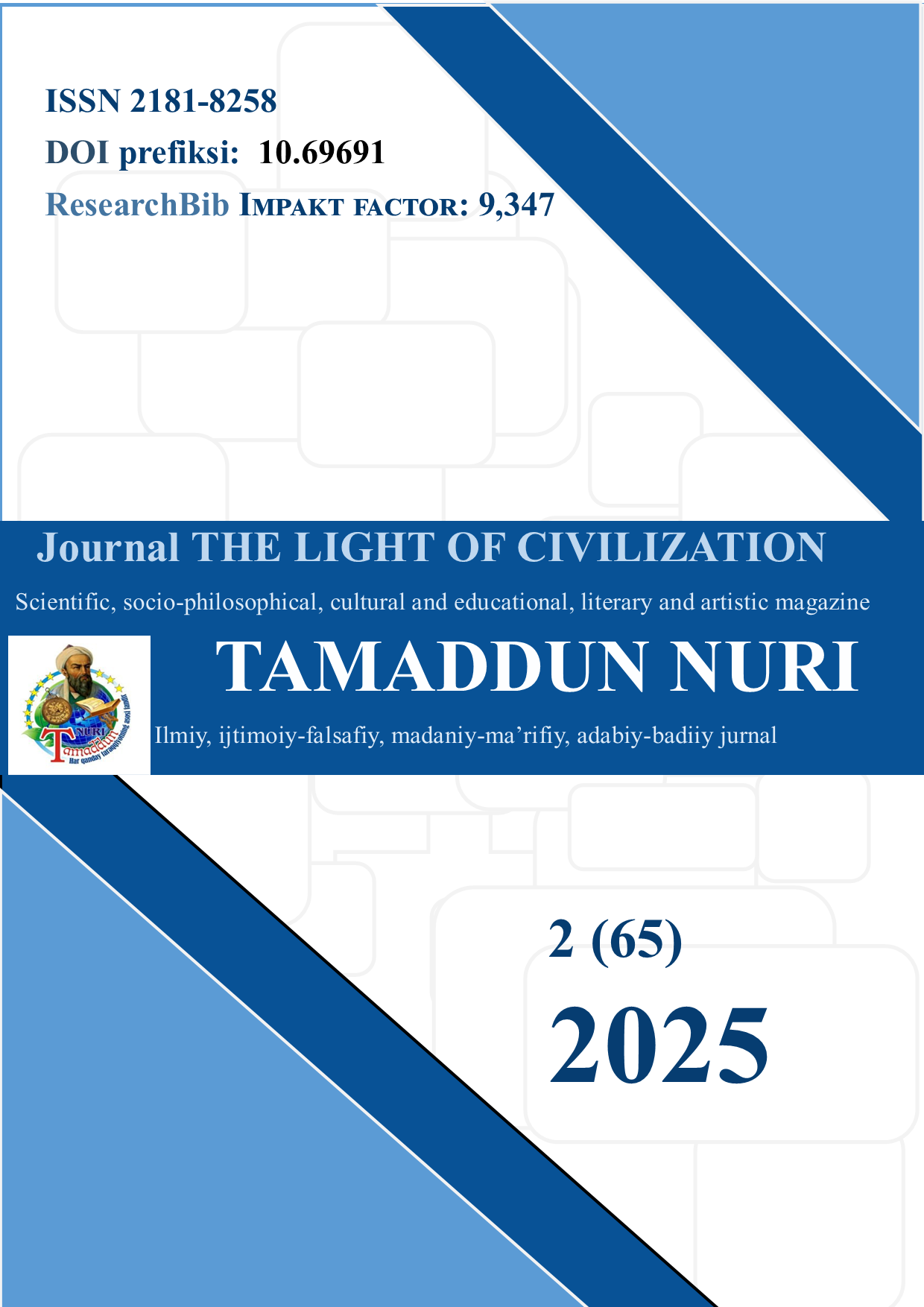ISLAM AND FREEDOM: PHILOSOPHICAL AND PRACTICAL ASPECTS
DOI:
https://doi.org/10.69691/c9e4dh78Keywords:
Islamic teachings, freedom, religious freedom, personal freedom, social responsibility, Quran, Hadith, Islamic philosophy, tolerance, human rights, political freedom, social justice.Abstract
This article examines the idea of freedom in Islamic teachings. The study highlights the personal, religious, and social aspects of freedom and identifies their role in society and state governance. It shows that the idea of freedom in Islam is closely related to moral responsibility and interfaith tolerance. The article offers a scientific approach to harmonizing freedom in Islam with the requirements of the new era.
References
Shayx Muhammad Sodiq Muhammad Yusuf. Tafsiri hilol. 1,2,3-juz. HILOL-NASHR, 2008.
Imom Buxoriy. Sahih Buxoriy. Nashriyot: Dar al-Fikr, 2007.
The Dignity of Man: An Islamic Perspective, Cambridge: Islamic Texts Society, 2002.
Ibn Rushd. Al-Muqaddima fi al-falsafa. Dar al-Maarif, 1986.
Al-G‘azzoliy. Ihya’ Ulum al-Din. Dar al-Kutub al-Ilmiyah, 1999.
Al-Farobiy. Al-Madina al-Fazila. Dar al-Ma‘arif, 2003.
Cultural Diversity and Freedom, Parij, 2015.
Iqbol, Reconstruction of Religious Thought in Islam, London: Oxford University Press, 1930.
Al-Islam: Morality and Freedom, Bayrut: Dar al-Nashr, 1998.
Downloads
Published
Issue
Section
License
Copyright (c) 2025 Journal of Tamaddun Nuri

This work is licensed under a Creative Commons Attribution-NoDerivatives 4.0 International License.



